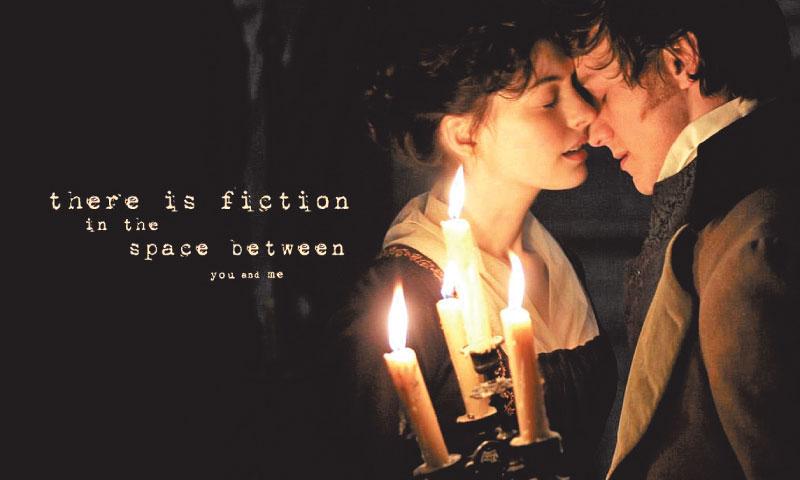
“She began now to comprehend that he was exactly the man who, in disposition and talents, would most suit her. His understanding and temper, though unlike her own, would have answered all her wishes. It was an union that must have been to the advantage of both; by her ease and liveliness, his mind might have been softened, his manners improved; and from his judgement, information, and knowledge of the world, she must have received benefit of greater importance.”
(Pride and Prejudice)
Becoming Jane is directed by Julian Jarrold and stars Anne Hathaway, James McAvoy, Julie Walters, James Cromwell and Maggie Smith. The movie is based on the life of Jane Austen during her early years and her romantic relationship with an Irish lawyer named Thomas Langlois Lefroy. The biographical evidence for the relationship between Jane Austen and Tom Lefroy can be found in Jane’s letters to her sister Cassandra in which she mentions Tom.
The film begins with a depiction of the Austen family in rural, Regency England during the early and mid nineteenth century. Jane’s father Rev. George Austen is a parish priest who educates Jane and encourages her to become a writer.
Tom Lefroy is a brilliant lawyer with a reputation, and he is sent to the country by his uncle, the Chief Judge Langlois of London in an attempt to reform his rakish ways. Judge Langlois who is also his benefactor reprimands Tom for living a dissipated life of drinking and whoring, and Tom impertinently tells his uncle that his reputation is “typical” of lawyers.
The initial meeting between Tom and Jane is fraught with tension because Tom is arrogant and Jane is headstrong, but there is chemistry between them and they feel drawn to each other. Tom tells Jane that she lacks experience to be a good writer of novels, and he gives her Henry Fielding’s novel Tom Jones which contains explicit descriptions, and is a story about a rake who is nevertheless kind hearted and compassionate, and reforms because of his love for the virtuous Sophia Western.
Meanwhile Jane refuses to marry the wealthy Mr. Wisley because he is not compatible and he does not love her.
Tom and Jane eventually fall in love and an interesting aspect of their relationship is that they like to kiss. Tom and Jane kiss very sweetly and gently yet passionately. Tom and Jane plan to get married and seek Judge Langlois’s blessings, but a rejected suitor of Jane’s whom she is not interested in and is still having an interest in her for marriage writes an anonymous letter to Tom’s uncle which causes him to oppose the marriage. But you wonder how it is possible for Judge Langlois to fail to discern the vested interests of Jane’s rejected suitor who writes the malicious letter.
Tom gives his consent to a marriage arranged by his family but misses Jane and goes back to her and suggests that they elope. Jane initially agrees to elope with Tom, but decides not to after she discovers that Tom has a family that is financially dependent on him, and his marriage to her would deprive them of his support and their only source of income, because Judge Langlois would disown Tom and cut off all ties with him.
Even though Tom has a reputation of being a rake, you feel drawn to him because he changes his ways after meeting Jane, and because he is warm and kind, and has a heart as well as a brilliant intellect. It is believed that Austen’s relationship with Lefroy formed the basis of Pride and Prejudice and the character of Darcy. The film proves that Austen’s appeal is universal and that she is relevant even in the twenty first century.
